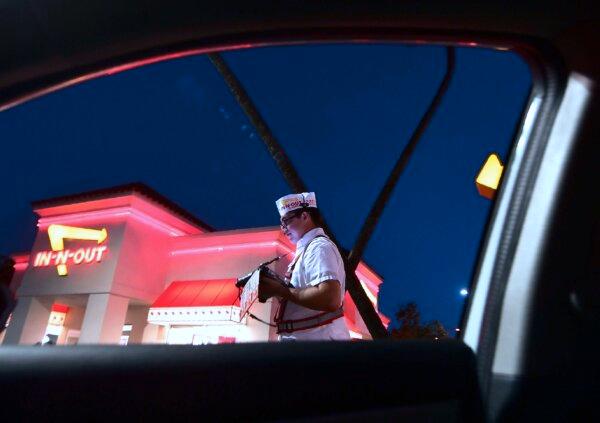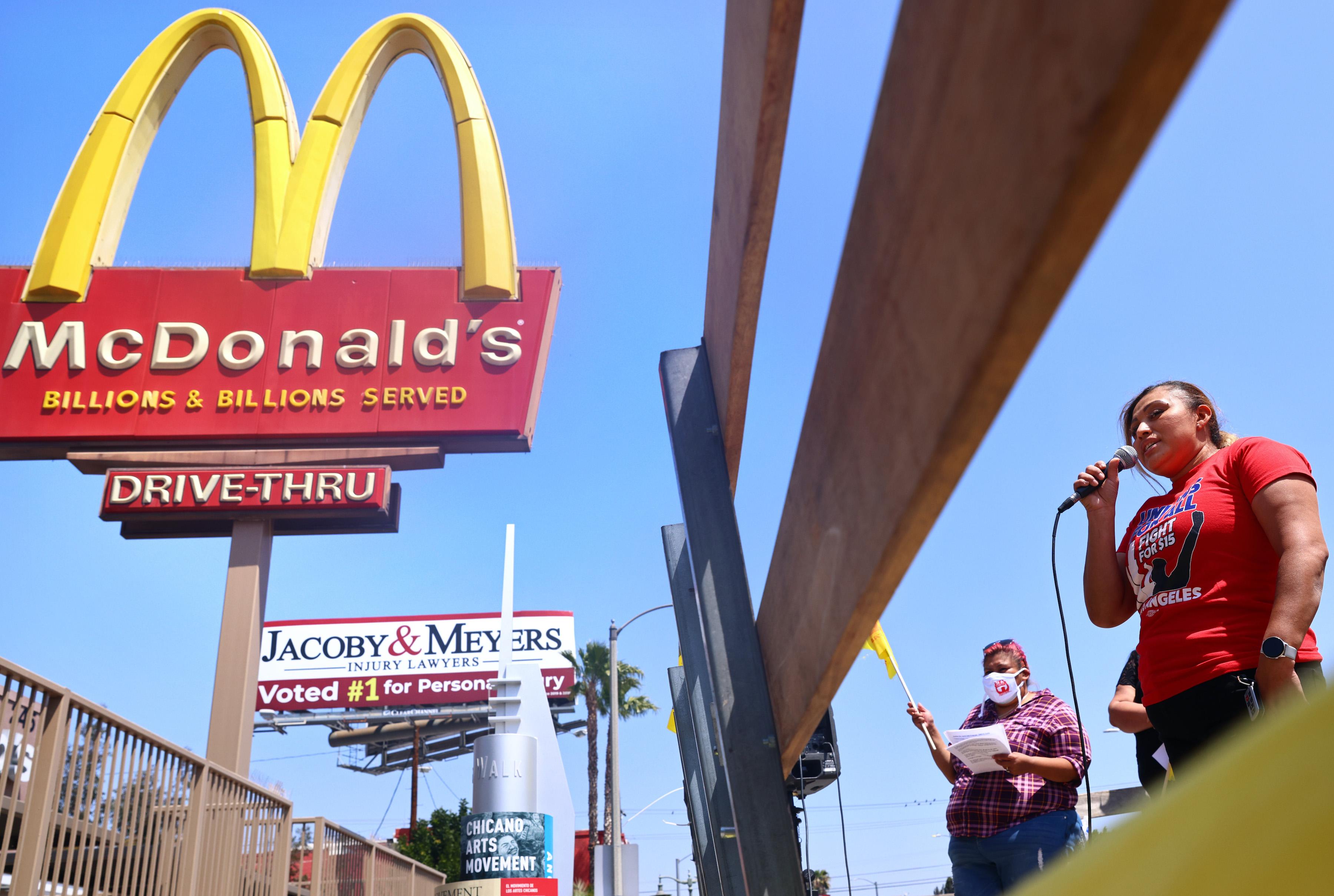While unions and supporters celebrated the signing of a bill that will change the nature of the fast-food business in California by raising minimum wages and expanding regulatory oversight, others said employees and consumers will be most impacted by the new law.
“[This will] destroy the franchise model in California—a proven pathway to business ownership and generational opportunity for entrepreneurs,” the National Owners Association—a group representing McDonald’s franchisees—said in a press release earlier this year. “The overwhelming majority of these restaurants are locally-owned and operated by small business owners.”
At issue is Assembly Bill 1228, authored by Assemblyman Chris Holden (D-Pasadena) which will establish an advisory council, expand legal liabilities to include franchisors, and increase minimum wages for fast-food workers in California to $20 per hour effective April 1, 2024.
Given the state’s minimum wage of $15.50, the difference will cause operating expenses to increase significantly, thus raising prices for consumers and limiting opportunities for profits and investments by companies, according to experts.
“The new AB 1228 legislation ... will result in a devastating financial blow to California McDonald’s franchisees at a projected annual cost of $250,000 per McDonald’s restaurant,” the association said in a memo first reported in September by Fox Business.
The regulations will apply to thousands of businesses across the Golden State, including all quick-service restaurants with at least 60 locations nationwide, with exceptions made for those that bake and sell their own bread, thus excluding Panera and Boudin.
Increasing wages could result in some employers operating with fewer staff, thus increasing workloads on existing employees, and others will opt for new mechanical options to replace human workers, experts say.

An employee takes orders from drivers waiting in the drive-thru lane at an In-N-Out Burger restaurant in Alhambra, Calif., on Aug. 30, 2018. (Frederic J. Brown/AFP via Getty Images)
A fully automated McDonald’s location—where no cashiers, cooks, or workers interface with customers—in operation in Fort Worth, Texas, could be a sign of the times, they say.
Critics also argued that businesses will be impacted by litigation due to clauses in the bill that expand legal liability making franchisees responsible for labor violations committed by other owner-operators.
Proponents of the new law say legal ramifications are needed, as the franchise system has allowed corporations, like McDonald’s Corp., to avoid litigation related to labor law violations by shielding corporations from the actions of franchisees.
“Rather than take responsibility for the conditions they have created, corporate franchisors have designed the franchise system to shield themselves from liability for labor violations,” Mr. Holden said in the Senate Judiciary analysis. “These billion-dollar corporations have written the rules so that they can enjoy maximum control and maximum profits while leaving small businesses owners and workers to fend for themselves.”
Employees at fast-food restaurants face the highest levels of poverty of any industry, according to a recent Economic Roundtable report, with many working more than one job, and one in nine experiencing homelessness.
Citing the University of California, Los Angeles’ Labor Center report that found workers in the industry twice as likely as others to fall below the poverty line and significantly more likely to be uninsured, the assemblyman said the new law will help reduce state spending on social programs and services designed to aid workers in such situations.
“This power imbalance hurts local economies as well as California taxpayers, who foot a bill of $4 billion annually for the portion of social safety net programs that subsidize the fast-food industry’s workers,” Mr. Holden said.
Supporters argued that the new law is also needed to improve conditions in the industry.
“AB 1228 marks a pivotal next step in California fast-food workers’ fight for respect and a stronger voice on the job,” the Service Employees International Union—a sponsor of the bill representing more than 1.9 million workers—said in the legislative analyses.
Opponents—including the California Chamber of Commerce, International Franchise Association, California Restaurant Association, and dozens of organizations—argued that penalizing employers does not benefit workers, or the communities in which they live.
“Ensuring a level playing field for all California businesses is paramount and assigning liability only to the responsible party is in the interest of all involved,” the groups wrote in the legislative analyses. “Dismantling a business model that provides upward mobility and entrepreneurial opportunities to thousands of Californians is misguided public policy and will only serve to hamper job growth and opportunities across the state.”












